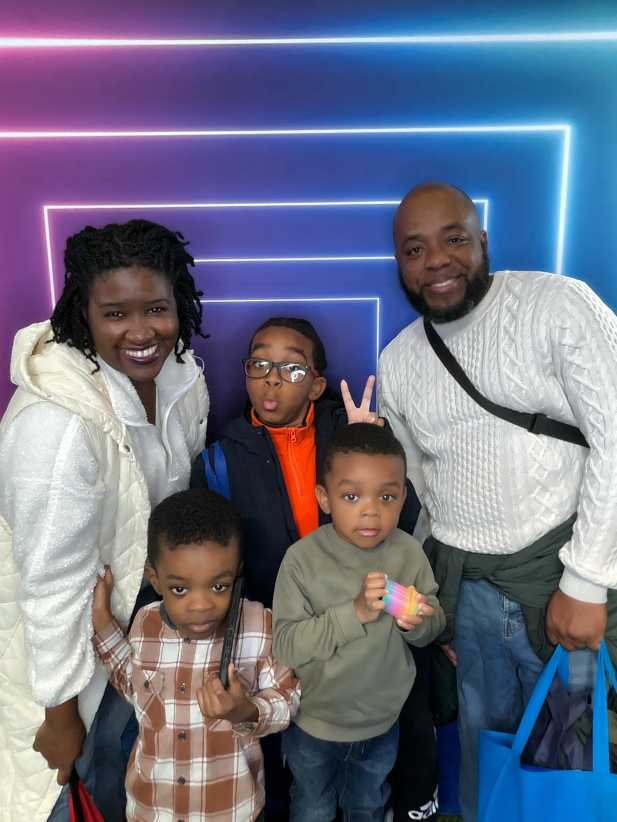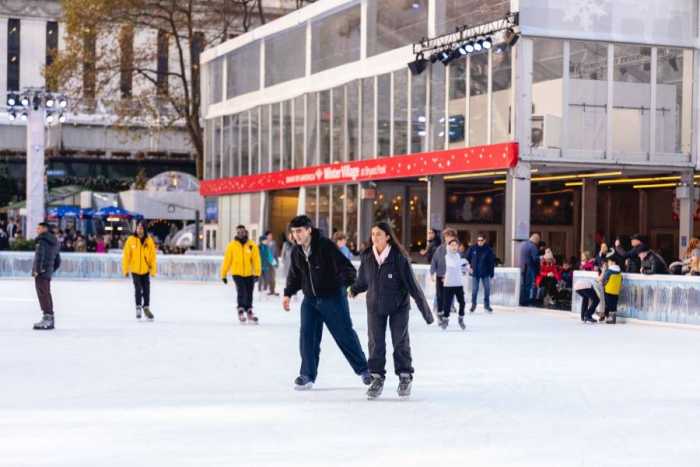 For city parents who suspect their child has a developmental delay, there’s good news—the city offers a wealth of free services for children with special needs, and there are also many experienced professionals in private practice in the city who work with children with special needs. But the bureaucracy around special needs can be confusing and overwhelming, so we asked a few local experts for their guidance.
For city parents who suspect their child has a developmental delay, there’s good news—the city offers a wealth of free services for children with special needs, and there are also many experienced professionals in private practice in the city who work with children with special needs. But the bureaucracy around special needs can be confusing and overwhelming, so we asked a few local experts for their guidance.
Trust Your Instincts
Many children reach developmental milestones within a typical time frame. For example, experts will tell you most children are sitting up between 4 and 7 months old. While it’s important to remember that each child develops differently, parents who suspect their child may have a delay “should trust their instincts—they know their child best,” says Dr. Daniela Montalto, Clinical Director of the Institute for Learning and Academic Achievement at the NYU Child Study Center (aboutourkids.org). Dr. Montalto advises parents to pay attention to potential delays, such as difficulty saying single words by 2 years old, which can indicate a speech or language-learning weakness.
Other warning signs for infants and toddlers include children not smiling by 3-4 months, not feeding themselves by 8 months and not walking by 15 months, says Dana Rosenbloom, a child and family therapist who works with all types of families but focuses on families with children who have special needs (danaskids.com). She advises parents to talk to their child’s pediatrician about their concerns. If still concerned, parents should have their child evaluated. In NYC, a child can be referred for services by doctors, teachers, child care agencies, social workers and other community-based agencies. Of course, parents can always get recommendations by calling 311 and asking for Early Intervention.
Get Evaluated
New York City’s Early Intervention Program is funded and regulated by the NYS Department of Health and the New York City Department of Health and Mental Hygiene. The Early Intervention Program (EIP) evaluates children up to age 3 for a variety of home-based therapeutic services. From ages 3 to 5 years, the Committee on Preschool Special Education (CPSE), also regulated and funded by both NYS and NYC, assesses eligibility for both home- and facility-based services. Once the initial evaluations are complete, you will find out if your child is eligible for services. At this point in Early Intervention, an Individual Family Service Plan (IFSP) is created. In CPSE, it is referred to as an Individual Education Plan (IEP).
Eligibility criteria are different in EI and CPSE. In both programs, services can include but are not limited to speech, physical, occupational and special education therapy sessions. In EI and CPSE, evaluations and services for eligible children are free. Within the private sector, organizations like the NYU Child Study Center offer comprehensive neuropsychological evaluations of a child’s attention, memory and social and emotional development. (See sidebar for more on where to get evaluated in NYC.)
Consider Your Options
Many public and private school options exist for children with special needs. Rosenbloom explains that in Early Intervention, each child is given a Case Coordinator who will work with parents to determine which early childhood programs and services will best meet their child’s needs. In CPSE, the Committee will help a parent evaluate choices. The Individuals with Disabilities Education Act (IDEA) requires that children be educated in the “least restrictive environment.” This means that CPSE will consider providing special education services in an environment with age-appropriate, typically developing peers. (Rosenbloom cites YAI/NYL Gramercy School as a popular and well-regarded early childhood programs for children with special needs.)
Once a child has reached age 5 (and up to 21 years old), the Committee on Special Education (CSE) provides evaluation and services. If your child has been receiving CPSE services, during the year prior to kindergarten, the Committee will decide if your child continues to require special education services. The CSE will recommend that your child either receives these services in a public school environment or in another educational setting. In public school, Collaborative Team Teaching (CTT) classes taught by two teachers, one trained in special education, are increasingly common. Children who are struggling in specific areas, such as math or reading, receive small group instruction, while the rest of the class listens to the general education teacher. Afterward, all students engage in mainstream learning.
“Evaluations indicate if children will benefit from CTT classes, where half of the kids have no learning disabilities,” Dr. Montalto says. “Observing general education children who perform in a stronger way enables some kids with special needs to adapt what they see to their own style.” CTT classes can also be beneficial for typically-developing children “whose self esteem is built while they are helping others,” Rosenbloom adds. But she also points out that CTT classes aren’t the best fit for everyone, especially students with more significant developmental needs.
Seek Legal Counsel
Parents choose to forego public school options for various reasons, including the absence of programs equipped to meet their child’s specific learning needs. Upon enrolling their child in a private school, these parents often seek tuition reimbursement by filing a lawsuit against the Department of Education (DOE), stating that “the DOE failed to offer their child the statutory right to a free and appropriate public education,” explains Regina Skyer of the Law Offices of Regina Skyer & Associates (skyerlaw.com), a firm that specializes in advocating for children with special education needs. While there’s no guarantee that families will win the case and recoup tuition costs, Skyer recommends parents work with an attorney specialized in advocating, mediating and litigating for kids with learning disabilities. She notes that the multi-step process is complex, and it’s best if the child has been privately evaluated. Also, unless parents choose a private program from a list of approved schools, they’ll have to reapply each year. She recommends parents attend workshops on the subject such as those hosted by private schools or the JCC in Manhattan.
For more special needs coverage, see the November issue of New York Family.
BIG TIP: Special Needs Evaluation Centers And Advocacy Groups
In addition to contacting the following providers, parents can call 311 and ask for Early Intervention. Also, parents can view a list of city-approved evaluation providers by borough at nyc.gov.
ABC Early Intervention Program a-b-c.org
Advocates For Children advocatesforchildren.org
Bank Street Family Center bnkst.edu/fc
Child Mind Institute childmind.org
Early Childhood Associates earlychildhoodassociates.org
Important Steps importantsteps.com
Los Ninos Services losninos.com
NYU Child Study Center aboutourkids.org
TheraCare theracare.com
YAI/NYL yai.org
OTHER RESOURCES
Ask Stefanie askstefanie.com
Dana’s Kids danaskids.com
Gigi’s Playhouse gigisplayhouse.org (search New York)
New York Child Development newyorkchilddevelopment.com
New York Child Development is a private practice dedicated to providing infants and children with developmental, neurological and biological diagnoses. The clinical team focuses on feeding, speech and language delays. This is done not only through fostering a relationship with the child, but also by supporting and advising the entire family.
New York Special Needs Support nyspecialneeds.com












